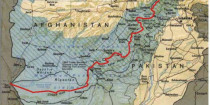Liz Augustat (Austria) – Ms. Augustat is President of Peace through Culture. Europe (Germany)
Peace through Culture is an organization whose main target is to build bridges between ethnics, countries, religions, traditions and different worldviews. Focused on our function as an inspirer and connector, we have organized numerous conferences in Kazakhstan and other Eurasian countries. Looking back to our World Congress under the title “Towards Spiritual Concord” in Almaty with more than 1500 attendees, which was supported greatly by the then-President Nursultan Nazarbayev I especially remember the late Prof. Dr. Dr. H.C. Hans Peter Dürr, the world-renowned German quantum physicist, director of the famous Max-Planck-Institute for Physics, and winner of the Alternative Nobel Prize, who so often enriched us with his participation and insights. Our joint conversations are partially reflected in my contribution.
Nuclear physicists are eagerly following the basic question on what is holding our world together at its core. So Prof. Dürr also asked himself what actually is behind matter. He split matter into smaller and smaller parts hoping to eventually find the essence. But after 50 years of research, he came to the astonishing conclusion: The essence does not lie in matter, but actually does not even exist in the way we thought. What we think matter is, actually is vibration and energy, it is a structure of relations.
Reality is quite different from what we have imagined it to be so far. Expressed in modern language there is no physical matter/hardware at the beginning, but only idea and software. In other words, and with the help of logics, it follows that the so-called “physical or gross matter” and the so-called “subtle matter” are two sides of the same coin, an inseparable unity of spirit and matter. This statement, so far assigned to the area of spirituality, is now getting substantiated scientifically by quantum physics step by step and is likely to radiate into all areas of society in the future.
Our world is the One and the Whole and cannot be dissected. This fact leads to fantastic consequences, because if we include ourselves in this world, we are distinguishable, but not separate. We are all part of this community, in this connectedness. In Sanskrit, this is called “Advaita,” the Oneness, the A-duality.
When people wage wars against each other, they are hurting themselves at the same time, because all living beings are part of the One. When anything in the world suffers, we suffer with it, even if we do not know the reason. This is not to be attributed to sentimentality, but [to] a deep ontological feeling that touches our common roots. Despite retaining our individuality, we are part of a higher unity, namely the whole of humanity.
Reality around us constantly gives evidence to the collective liability mankind is caught in: Let us just take examples such as “El Nino” or the testing of nuclear weapons or the gigantic emissions of poison by industry into the air and the oceans—effects that do not stop at national borders, nor at mountain heights, nor at depths of the oceans.
Worldwide cooperation, individual ethical responsibility, benevolence and mutual understanding of cultures and traditions among peoples will be necessary to climb to the next step: towards world peace. So far, unfortunately, the United Nations has fulfilled the hope of uniting the world through joint political action just rudimentarily, in some individual departments. Can we create something similar in the field of international, intercultural and interreligious understanding and achieve effective results?
Many years ago, my late father, Willy Augustat, already introduced the concept of an International World Ethics Congress, from which a World Ethical Council subsequently would have to emerge. Such an institution would ensure that universal ethical requirements and corresponding parameters could optimally be considered in all major decisions at all levels.
It is true that not all languages differentiate between the terms ethics and morality. However, we can clearly state that “moral” is a somewhat limited term, used within society of either local or temporary significance (what to do or not to do in the sense of customs and traditions). What was allowed and accepted in former times is no longer valid now and vice versa! The current morals are part of the education and legal regulations within a country or group. Whereas the ethical foundation is already part of the human being—it is, so to say, inborn in the individual!
Looking for universal principles we find them in all great world religions, which have a lot of basic ethical requirements for the individual’s consciousness and character in common.
Ethical Councils on a worldwide basis could be composed of impartial representatives of the academies of the humanities and social sciences, artists, scientists in general and religious representatives; they would have to recognize all world religions in their original sense and represent ethics as the common foundation of all cultures and religions. Each candidate would have to be chosen by virtue of his knowledge and authority in a particular field and by virtue of the esteem and trust he enjoys in his own or related cultures.
In this conceptual framework, national ethical councils would have to send representatives to the World Ethics Council, which needs to be on a par with the United Nations. All measures would only be adopted with the agreement of both bodies so that ethical standards are taken into account in every political and other far-reaching decision. Veto rights would not exist within the countries of the United Nations as they do today, but only on the part of the Ethical Council. In a future world community, the advantage of one must also be to the advantage of all others. All cultures of the world should be allowed to keep their substance and thus be included in the aspired overarching World Peace Culture. Unity in diversity, universal ethical principles such as justice—non-violence—equality—freedom—community and philanthropy are the values of today. The kick-off could take place in the frame of an Ethical Congress where the participants define and elect suitable candidates. Let us carry this idea to the next level of practical realization together!
We are here today because we know that there is no other way left for us but to move forward towards peace, if life on Earth is to continue. We all are aware that time is mature for a new paradigm, a profound change of consciousness. Going back to Plato and other philosophers, we must awaken our consciousness again to the cosmic law of cause and effect which at the same time is connected to self-responsibility for everyone.
Fritjof Capra, physicist and futurologist, compares this approach with a global immune system that becomes active for protection of our Earth, a collective and almost instinctive response of humanity to the acute threat to its livelihood. This immune system consists of many people and groups who are tirelessly engaged in all places of our globe to neutralize and regenerate the harmful influences that are threatening our life everywhere.
I am very happy that the Schiller-Institute offers a strong network of such immune reaction for a peaceful future for ALL!
And let me close with my father’s words: “World Peace can only build on a higher cultural consciousness and responsibility, as well as awareness of necessary action!”
Thank you very much for your attention.











